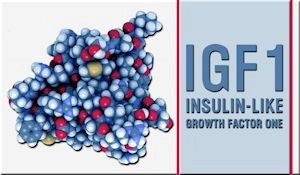Introduction
Endocrinology, the study of hormones and their actions, plays a pivotal role in male reproductive health. In the United States, where lifestyle and environmental factors significantly influence health outcomes, understanding the endocrinological aspects of male fertility is crucial. This article delves into how hormonal imbalances affect fertility rates among American males and explores the efficacy of hormonal treatments in addressing these issues.
The Role of Hormones in Male Fertility
Hormones such as testosterone, follicle-stimulating hormone (FSH), and luteinizing hormone (LH) are essential for male reproductive health. Testosterone, produced primarily in the testes, is vital for sperm production and libido. FSH and LH, secreted by the pituitary gland, regulate testosterone production and spermatogenesis. Disruptions in these hormonal pathways can lead to reduced fertility.
In the U.S., factors such as obesity, stress, and exposure to endocrine-disrupting chemicals can alter hormone levels, contributing to declining fertility rates. Studies have shown that American men's sperm counts have decreased by over 50% in the last few decades, a trend that underscores the need for targeted interventions.
Hormonal Imbalances and Their Impact on Fertility
Hormonal imbalances can manifest in various ways, affecting male fertility. Hypogonadism, characterized by low testosterone levels, is a common condition that can impair sperm production and libido. Similarly, elevated levels of prolactin, a hormone that stimulates milk production in females, can inhibit testosterone production in males, leading to infertility.
Moreover, thyroid disorders can also impact male fertility. Both hyperthyroidism and hypothyroidism can disrupt the delicate balance of reproductive hormones, leading to reduced sperm quality and quantity. Addressing these imbalances through medical intervention is crucial for restoring fertility.
Hormonal Treatments and Their Efficacy
Hormonal treatments are often employed to address fertility issues in American males. Testosterone replacement therapy (TRT) is a common approach for men with hypogonadism. While TRT can improve libido and overall well-being, its impact on fertility is complex. Exogenous testosterone can suppress the body's natural production of testosterone and sperm, necessitating careful monitoring and management.
For men with specific hormonal deficiencies, such as low FSH or LH levels, gonadotropin therapy can be effective. Human chorionic gonadotropin (hCG) and recombinant FSH are used to stimulate the testes and enhance sperm production. These treatments have shown promising results in improving fertility rates among men with hormonal deficiencies.
Lifestyle and Environmental Factors
Beyond medical interventions, lifestyle and environmental factors play a significant role in male reproductive health. Obesity, a prevalent issue in the U.S., is linked to lower testosterone levels and reduced fertility. Encouraging healthy weight management through diet and exercise can mitigate these effects.
Exposure to environmental toxins, such as pesticides and plastics, can also disrupt hormonal balance. Reducing exposure to these substances through lifestyle changes and regulatory measures can help protect male fertility.
Conclusion
The interplay between endocrinology and male reproductive health is complex and multifaceted. In the United States, where fertility rates are declining, understanding and addressing hormonal imbalances is crucial. Hormonal treatments, when appropriately managed, can improve fertility outcomes. However, a holistic approach that includes lifestyle modifications and environmental awareness is essential for promoting male reproductive health. As research continues to evolve, the hope is that more effective strategies will emerge to support American males in achieving and maintaining fertility.
Contact Us For A Fast And Professional Response

- Endocrinology and Sleep Disorders: Impact and Management in American Men [Last Updated On: February 20th, 2025] [Originally Added On: February 20th, 2025]
- Vitamin D's Crucial Role in Endocrine Health for American Males [Last Updated On: March 17th, 2025] [Originally Added On: March 17th, 2025]
- Lifestyle Impact on Endocrine Health in American Men: Diet, Exercise, Sleep, Stress [Last Updated On: March 18th, 2025] [Originally Added On: March 18th, 2025]
- Endocrine Health and Cancer Risk in American Men: A Comprehensive Analysis [Last Updated On: March 19th, 2025] [Originally Added On: March 19th, 2025]
- Managing PCOS in Transgender American Men: Endocrinological and Tailored Care Approaches [Last Updated On: March 19th, 2025] [Originally Added On: March 19th, 2025]
- Autoimmune Endocrine Disorders in American Males: Diagnosis, Treatment, and Management [Last Updated On: March 19th, 2025] [Originally Added On: March 19th, 2025]
- Hormonal Changes in Aging Men: Impacts and Management Strategies [Last Updated On: March 19th, 2025] [Originally Added On: March 19th, 2025]
- Hormonal Optimization for American Male Athletes: Enhancing Performance Naturally [Last Updated On: March 20th, 2025] [Originally Added On: March 20th, 2025]
- Endocrine Disruptors: Impact on American Male Health and Mitigation Strategies [Last Updated On: March 20th, 2025] [Originally Added On: March 20th, 2025]
- Endocrinology's Role in Weight Management for American Males: Hormones and Strategies [Last Updated On: March 21st, 2025] [Originally Added On: March 21st, 2025]
- Managing Type 2 Diabetes in American Men: An Endocrinological Approach [Last Updated On: March 21st, 2025] [Originally Added On: March 21st, 2025]
- Male Sexual Health and Endocrinology: Hormones, Disorders, and Treatment Insights [Last Updated On: March 22nd, 2025] [Originally Added On: March 22nd, 2025]
- Chronic Fatigue in American Males: Endocrinology's Role in Diagnosis and Management [Last Updated On: March 22nd, 2025] [Originally Added On: March 22nd, 2025]
- Dietary Impact on Endocrine Health in American Men: Hormones and Nutrition Strategies [Last Updated On: March 22nd, 2025] [Originally Added On: March 22nd, 2025]
- Smoking's Impact on Male Endocrine Health: Testosterone, Thyroid, and More [Last Updated On: March 23rd, 2025] [Originally Added On: March 23rd, 2025]
- Male Depression and Endocrinology: Hormonal Insights and Management Strategies [Last Updated On: March 23rd, 2025] [Originally Added On: March 23rd, 2025]
- Endocrine Health and Mental Well-being in American Males: Hormonal Balance and Lifestyle Impact [Last Updated On: March 23rd, 2025] [Originally Added On: March 23rd, 2025]
- Hormones and Joint Health in American Men: Impacts, Interventions, and Prevention [Last Updated On: March 23rd, 2025] [Originally Added On: March 23rd, 2025]
- Hormonal Influences on Dental Health in American Men: Strategies for Optimal Oral Care [Last Updated On: March 24th, 2025] [Originally Added On: March 24th, 2025]
- Managing Endocrine Disorders in American Men with Neurological Conditions: A Tailored Approach [Last Updated On: March 24th, 2025] [Originally Added On: March 24th, 2025]
- Alcohol's Impact on Endocrine Health in American Males: A Comprehensive Overview [Last Updated On: March 24th, 2025] [Originally Added On: March 24th, 2025]
- Endocrinology's Role in Male Infertility: Diagnosis, Treatment, and Lifestyle Impact [Last Updated On: March 24th, 2025] [Originally Added On: March 24th, 2025]
- Endocrine Health and Liver Function: Impacts on American Male Health [Last Updated On: March 24th, 2025] [Originally Added On: March 24th, 2025]
- Hormonal Influences on Immune Health in American Men: Testosterone, Cortisol, and More [Last Updated On: March 24th, 2025] [Originally Added On: March 24th, 2025]
- Hormones and Skin Health: A Guide for American Men [Last Updated On: March 24th, 2025] [Originally Added On: March 24th, 2025]
- Endocrinology's Impact on Muscle Health in American Males: Hormones and Optimization Strategies [Last Updated On: March 24th, 2025] [Originally Added On: March 24th, 2025]
- Endocrine System's Role in Digestive Health of American Males: Hormones and Disorders [Last Updated On: March 25th, 2025] [Originally Added On: March 25th, 2025]
- Endocrine Health and Hearing Loss in American Males: Insights and Prevention [Last Updated On: March 25th, 2025] [Originally Added On: March 25th, 2025]
- Sleep's Impact on Endocrine Health in American Males: Hormones and Well-being [Last Updated On: March 25th, 2025] [Originally Added On: March 25th, 2025]
- Endocrine Disorders and Heart Disease: Management Strategies for American Men [Last Updated On: March 25th, 2025] [Originally Added On: March 25th, 2025]
- Nutrition's Impact on Endocrine Health in American Males: Dietary Choices and Hormone Balance [Last Updated On: March 25th, 2025] [Originally Added On: March 25th, 2025]
- Gout in American Males: Endocrinological Insights and Management Strategies [Last Updated On: March 26th, 2025] [Originally Added On: March 26th, 2025]
- Exercise Benefits on Endocrine Health in American Males: Hormonal Impacts Explored [Last Updated On: March 26th, 2025] [Originally Added On: March 26th, 2025]
- Endocrinology's Impact on Kidney Health: A Guide for American Men [Last Updated On: March 26th, 2025] [Originally Added On: March 26th, 2025]
- Endocrinology's Role in Treating Male Eating Disorders in the USA [Last Updated On: March 26th, 2025] [Originally Added On: March 26th, 2025]
- Endocrine Disorders and Autoimmune Diseases in American Men: Management and Impact [Last Updated On: March 26th, 2025] [Originally Added On: March 26th, 2025]
- Endocrine Health's Role in Prostate Cancer Among American Men: A Comprehensive Overview [Last Updated On: March 26th, 2025] [Originally Added On: March 26th, 2025]
- Chronic Stress Impact on Endocrine Health in American Males: Hormonal Pathways and Management [Last Updated On: March 26th, 2025] [Originally Added On: March 26th, 2025]
- Endocrine Health and Vision: Critical Insights for American Males [Last Updated On: March 26th, 2025] [Originally Added On: March 26th, 2025]
- Hormonal Imbalances and Foot Health in American Men: Impacts and Management Strategies [Last Updated On: March 27th, 2025] [Originally Added On: March 27th, 2025]
- Endocrinology's Role in Managing Male Insomnia in the USA [Last Updated On: March 27th, 2025] [Originally Added On: March 27th, 2025]
- Endocrine-Gastrointestinal Interplay: Management Strategies for American Men [Last Updated On: March 27th, 2025] [Originally Added On: March 27th, 2025]
- Exploring Endocrinology's Role in Treating Male Anxiety in the USA [Last Updated On: March 28th, 2025] [Originally Added On: March 28th, 2025]
- Endocrine Disorders and Skin Health in American Men: Diagnosis, Treatment, and Management [Last Updated On: March 28th, 2025] [Originally Added On: March 28th, 2025]
- Endocrine Health's Impact on Respiratory Function in American Males [Last Updated On: March 28th, 2025] [Originally Added On: March 28th, 2025]
- Endocrine Health and Nail Conditions in American Males: A Diagnostic Insight [Last Updated On: March 28th, 2025] [Originally Added On: March 28th, 2025]
- Exploring Endocrinology's Role in Managing ADHD in American Males [Last Updated On: March 28th, 2025] [Originally Added On: March 28th, 2025]
- Caffeine's Impact on Endocrine Function in American Males: Risks and Recommendations [Last Updated On: March 28th, 2025] [Originally Added On: March 28th, 2025]
- Hormonal Hair Loss in American Men: Causes, Treatments, and Future Research [Last Updated On: March 29th, 2025] [Originally Added On: March 29th, 2025]
- Endocrine Disorders in Men: Impact on Eye Health and Management Strategies [Last Updated On: March 30th, 2025] [Originally Added On: March 30th, 2025]
- Endocrinology's Role in Enhancing Bipolar Disorder Treatment for American Men [Last Updated On: March 30th, 2025] [Originally Added On: March 30th, 2025]
- Endocrinology's Role in Treating PTSD Among American Males: Hormonal Insights and Interventions [Last Updated On: March 30th, 2025] [Originally Added On: March 30th, 2025]
- Endocrine Disorders and Hand Health in American Males: Impacts and Management Strategies [Last Updated On: April 1st, 2025] [Originally Added On: April 1st, 2025]
- Hormonal Influences on Nasal Health in American Men: A Comprehensive Overview [Last Updated On: April 2nd, 2025] [Originally Added On: April 2nd, 2025]
- Endocrine Disorders and Ear Health: Impacts and Management for American Men [Last Updated On: April 5th, 2025] [Originally Added On: April 5th, 2025]
- Hydration's Impact on Endocrine Health in American Males: A Comprehensive Guide [Last Updated On: April 5th, 2025] [Originally Added On: April 5th, 2025]
- Exploring Endocrinology's Role in Treating Schizophrenia in Male Patients [Last Updated On: April 6th, 2025] [Originally Added On: April 6th, 2025]
- Endocrine System's Impact on Throat Health in American Males: Hormonal Insights [Last Updated On: April 6th, 2025] [Originally Added On: April 6th, 2025]
- Dietary Supplements' Impact on Endocrine Health in American Males: A Comprehensive Analysis [Last Updated On: April 7th, 2025] [Originally Added On: April 7th, 2025]
- Managing Endocrine Disorders in American Men with Lung Conditions: A Multidisciplinary Approach [Last Updated On: April 8th, 2025] [Originally Added On: April 8th, 2025]
- Hormonal Influences on Heart Health in American Men: Testosterone, Thyroid, Insulin [Last Updated On: April 8th, 2025] [Originally Added On: April 8th, 2025]
- Mental Health's Impact on Endocrine Function in American Males: A Comprehensive Analysis [Last Updated On: April 8th, 2025] [Originally Added On: April 8th, 2025]
- Managing Endocrine Disorders in American Men with Kidney Disease: A Multidisciplinary Approach [Last Updated On: April 9th, 2025] [Originally Added On: April 9th, 2025]
- Endocrine Health's Impact on Blood Health in American Males: A Comprehensive Overview [Last Updated On: April 10th, 2025] [Originally Added On: April 10th, 2025]
- Exploring Endocrinology's Role in Treating Male Autism in the USA [Last Updated On: April 10th, 2025] [Originally Added On: April 10th, 2025]
- Hormonal Influences on Male Brain Health: Testosterone, Cortisol, and More [Last Updated On: April 10th, 2025] [Originally Added On: April 10th, 2025]
- Exploring Endocrinology's Role in Treating OCD Among American Males [Last Updated On: April 13th, 2025] [Originally Added On: April 13th, 2025]
- Endocrine-Nerve Health in American Males: Hormones, Disorders, and Holistic Care [Last Updated On: April 14th, 2025] [Originally Added On: April 14th, 2025]
- Aging Effects on Endocrine Function in American Males: Hormonal Changes and Management [Last Updated On: April 14th, 2025] [Originally Added On: April 14th, 2025]
- Lifestyle Choices Impacting Endocrine Health in American Males: Diet, Exercise, Sleep, Stress [Last Updated On: April 16th, 2025] [Originally Added On: April 16th, 2025]
- Exploring Hormonal Links in Male ADD: An Endocrinological Perspective [Last Updated On: April 16th, 2025] [Originally Added On: April 16th, 2025]
- Endocrine Disorders and Muscle Health in American Men: Challenges and Management Strategies [Last Updated On: April 16th, 2025] [Originally Added On: April 16th, 2025]
- Hormonal Fluctuations and Their Impact on Men's Skin Health in America [Last Updated On: April 17th, 2025] [Originally Added On: April 17th, 2025]
- Endocrine Health's Impact on Joint Function in American Males: A Comprehensive Guide [Last Updated On: April 18th, 2025] [Originally Added On: April 18th, 2025]
- Managing Endocrine Disorders in American Men with Heart Conditions: A Holistic Approach [Last Updated On: April 18th, 2025] [Originally Added On: April 18th, 2025]
- Endocrine System and Liver Function: Vital Health Link in American Males [Last Updated On: April 18th, 2025] [Originally Added On: April 18th, 2025]
- Bone Health in American Men: Hormonal Influences and Holistic Management Strategies [Last Updated On: April 19th, 2025] [Originally Added On: April 19th, 2025]
- Endocrinology's Vital Role in Treating Male Eating Disorders in the U.S. [Last Updated On: April 19th, 2025] [Originally Added On: April 19th, 2025]
- Endocrinology's Role in Managing Diabetes Among American Males: A Comprehensive Approach [Last Updated On: April 21st, 2025] [Originally Added On: April 21st, 2025]
- Endocrinology's Impact on American Male Health: Hormones and Wellness [Last Updated On: April 22nd, 2025] [Originally Added On: April 22nd, 2025]

















